Separate food waste collections are now one step closer in England as a result of an action by the departing Theresa May government. This is a move which, if the UK was going to make-good on a number of promises, has seemed to be an inevitable consequence of the stated policy. Yet, like so much else on the UK political scene, has been held up by the Brexit pre-occupations of the conservative party.
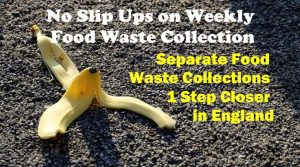 Until very recently in the UK the government has been unwilling to fund new measures of any sort by local authorities. This, despite there being examples, such as for separate food waste collections, of an overwhelming case for very minor additional public spending. Very obvious help was needed here, but no money was made available. At last, the provision of free-issue caddy liners to ratepayers for use in caddies can go out for industry and public consultation. It is all part of “the end of austerity”. By that we mean the austerity in public spending imposed since 2010 when the UK returned a conservative government, after the stock market crash of 2008.
Until very recently in the UK the government has been unwilling to fund new measures of any sort by local authorities. This, despite there being examples, such as for separate food waste collections, of an overwhelming case for very minor additional public spending. Very obvious help was needed here, but no money was made available. At last, the provision of free-issue caddy liners to ratepayers for use in caddies can go out for industry and public consultation. It is all part of “the end of austerity”. By that we mean the austerity in public spending imposed since 2010 when the UK returned a conservative government, after the stock market crash of 2008.
Caddy liners in our view are an essential pre-requisite to convincing the public that government is serious about cutting food waste. The prices charged by supermarkets for food waste caddie bags has been, and still is, exorbitant.
Without this sort of measure to show that society is genuinely to benefit from separate food waste collection, the venture would fail. It will still be an uphill battle to get most people to recycle food waste. A venture which of course to make any sense needs to be combined with the production of biogas from their stale food,
ADBA Press Release:
Defra responds to consistency in recycling collections in England consultation
- ADBA welcomes Defra's positive decisions on food waste collections for households and businesses
- ADBA recommendations taken on board
- Many respondents mention AD as a technology to improve food waste treatment.
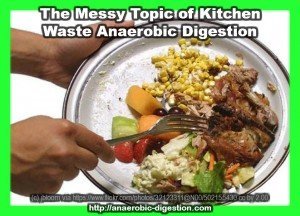 The UK Anaerobic Digestion and Bioresources Association (ADBA) has welcomed the response from Defra to the Consistency in Household and Business Recycling Collections in England consultation, which was published today and takes on board the recommendations made in ADBA’s submission.
The UK Anaerobic Digestion and Bioresources Association (ADBA) has welcomed the response from Defra to the Consistency in Household and Business Recycling Collections in England consultation, which was published today and takes on board the recommendations made in ADBA’s submission.
Of particular significance is the decision to commit to mandatory weekly separate food waste collections, including flats, in England, and the launch of a further consultation to legislate towards food waste collections for businesses.
Additionally, Defra has recognised the need to support local authorities with funding upfront and for ongoing operation costs, and to provide incentives for residents, with the launch of a consultation on the supply of free caddy liners.
Another source of great satisfaction and encouragement for ADBA is that many respondents specifically mentioned anaerobic digestion (AD) when urging for better treatment for food waste.
 Charlotte Morton, ADBA’s Chief Executive, said:
Charlotte Morton, ADBA’s Chief Executive, said:
“We have long been advocating improved food waste management in England. If food loss and waste were a country, it would be the third biggest emitter of emissions globally. Separate food waste collections help us see how much food we are wasting and take action to reduce it, which is the biggest benefit. But the resources that went into producing the food are still in the inedible fraction. Recycling this through AD into clean green gas for power, transport or heat and natural fertiliser to grow more food shows the circular economy in action. Recycling a full kitchen caddy of food waste can generate enough energy to power a TV for 2.5 hours!¹ Recycling all organic wastes through AD can reduce global emissions by a whopping 13%².”
Good food waste management starts with the implementation by local authorities of wide-ranging, efficient and cost-effective food waste collections schemes, and we are therefore very pleased to see that Defra’s response to the consultation makes important steps towards achieving this.”
¹Source: Recycle Now
²Source: World Biogas Association Global Potential of Biogas report – July 2019


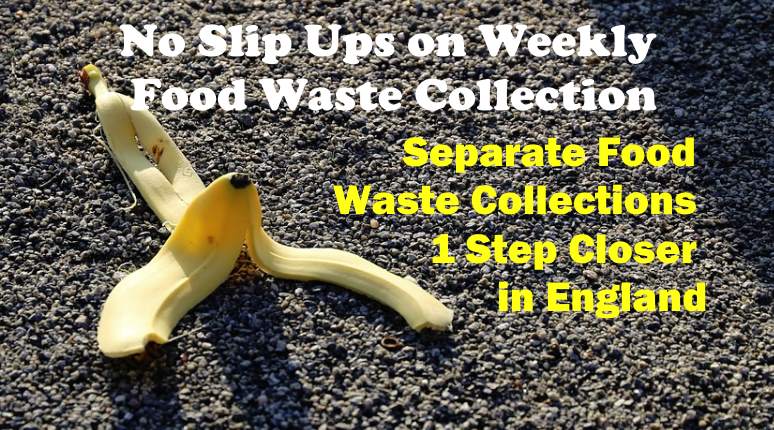
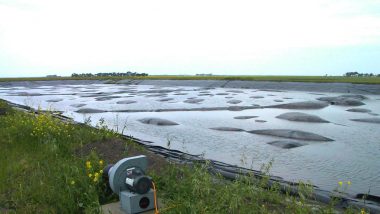
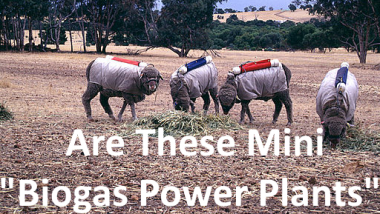


As our Land Trust NGO found in our 2016/17 AD (free) study for our local District Council, we needed to replace the plastic liners & bags used for foodwaste if they wanted to avoid a very expensive depackaging & mascerating process in the proposed AD plant. So, we researched for an alternative with Indian suppliers who use old newspapers to produce the familiar retail shops sector carrier bags, and found they were not only very much cheaper, even though they required treating with a natural, temporary water-resistant impregnation to prevent the bag breaking up due to moisture in the waste. AD doesn’t like plastic, so please stop talking about caddy liners (even expensive biodegradeable ones) for domestic caddies! In the case of commercial foodwaste collection, our study concluded commercial/industrial foodwaste producers should be made subject to pre-processing of the waste in-house, using waste stations (that also collect the nutrient-containing fluids) for contract collection for AD processing, by applying the EU ‘Polluter-Pays’ principle.
WONDERFUL Post. Come on England. It’s time to catch-up with Wales and Scotland and collect food waste everywhere.